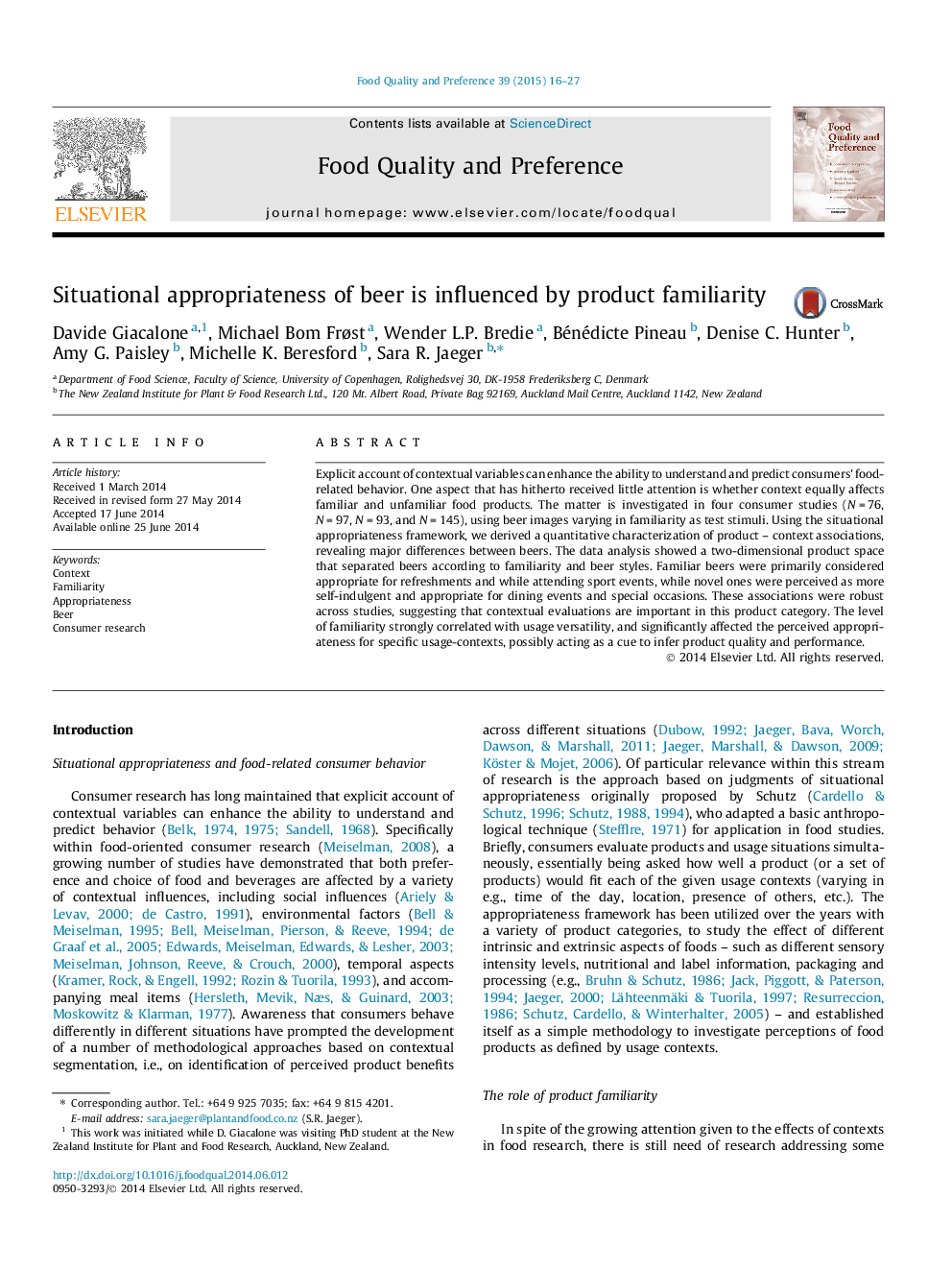| Article ID | Journal | Published Year | Pages | File Type |
|---|---|---|---|---|
| 4317090 | Food Quality and Preference | 2015 | 12 Pages |
•Contextual evaluations of familiar and unfamiliar beers were explored in four studies.•Beers vary widely in perceived appropriateness depending on usage contexts.•Product familiarity significantly affected appropriateness for specific contexts.•Familiar beers are perceived as appropriate in a broader range of contexts.
Explicit account of contextual variables can enhance the ability to understand and predict consumers’ food-related behavior. One aspect that has hitherto received little attention is whether context equally affects familiar and unfamiliar food products. The matter is investigated in four consumer studies (N = 76, N = 97, N = 93, and N = 145), using beer images varying in familiarity as test stimuli. Using the situational appropriateness framework, we derived a quantitative characterization of product – context associations, revealing major differences between beers. The data analysis showed a two-dimensional product space that separated beers according to familiarity and beer styles. Familiar beers were primarily considered appropriate for refreshments and while attending sport events, while novel ones were perceived as more self-indulgent and appropriate for dining events and special occasions. These associations were robust across studies, suggesting that contextual evaluations are important in this product category. The level of familiarity strongly correlated with usage versatility, and significantly affected the perceived appropriateness for specific usage-contexts, possibly acting as a cue to infer product quality and performance.
